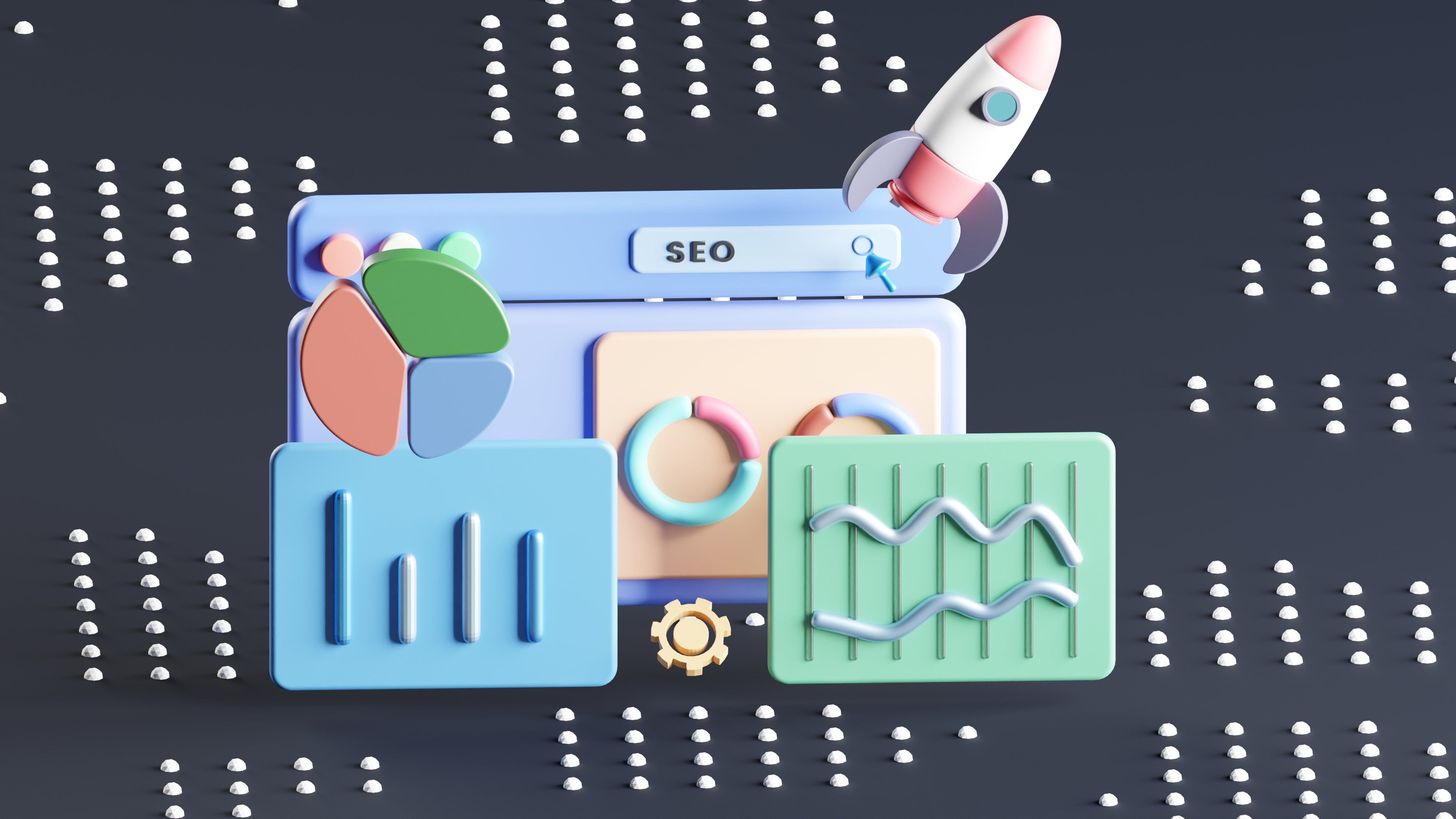AI Marketing: Revolutionizing Ecommerce with Smarter Strategies
AI Marketing: Revolutionizing Ecommerce with Smarter Strategies

Introduction
Imagine a world where your marketing efforts are not just a shot in the dark, but a well-aimed arrow hitting the bull's-eye of customer engagement, every single time. Welcome to the era of AI marketing, where artificial intelligence is not just a buzzword but a tangible tool revolutionizing ecommerce.
This article dives into the nuts and bolts of AI marketing, showcasing its potential to drive product sales, generate leads, promote products, and significantly increase website traffic.
So buckle up, and let's explore the world of AI marketing with a friendly and humorous touch, while keeping things informative and respectful.
What is AI Marketing?
AI marketing is the savvy cousin of traditional marketing, harnessing the power of artificial intelligence to unlock insights into customer behavior and crafting content that resonates on a personal level. It's like having a crystal ball that not only predicts what your customers want but also helps you deliver it with precision.
AI marketing takes the guesswork out of the equation, allowing marketers to personalize marketing assets and tailor them to fit the customer journey snugly. From chatbots that can hold a conversation better than some of your acquaintances, to targeted advertising that knows what you're interested in before you do, AI marketing is here to make a marketer's life a breeze.
And let's not forget content generation, where AI flexes its literary muscles to churn out everything from witty captions to engaging blog posts, though it still appreciates a human editor's touch.
How Marketers Use AI

Marketers are like chefs in a kitchen, and AI is their secret ingredient that makes every dish a masterpiece. Here's how they're sprinkling that AI magic onto their marketing strategies:
- Content Personalization: AI is the personal stylist of the digital world, ensuring that every piece of content fits the user like a glove, based on their online behavior and preferences. Dynamic content is the new black, changing to suit the user's taste for a truly personalized experience.
- Data Analytics: AI rolls up its sleeves and dives into the deep sea of data, fishing out actionable insights that help predict campaign outcomes. It's like having a time machine that gives you a peek into the future of your marketing efforts, saving you precious time and resources.
- Content Generation: With AI, content creation is like a high-speed train, delivering captions, social media posts, email subject lines, and blog entries at lightning speed. Although it speeds up the process, the human touch is still the final stop for quality control.
- Media Buying: Imagine if you had a crystal ball that told you where to place your ads for maximum effect. AI is that crystal ball, predicting the most effective placements to captivate your target audience and maximize ROI. With tools like Pattern89, AI is transforming media buying into a smart investment.
- Chatbots: AI-powered chatbots are the friendly neighborhood shopkeepers of the online world, always ready to solve problems, nurture leads, and offer personalized experiences. They're trained to go off-script, providing solutions even when the conversation takes an unexpected turn.
- Automated Email Marketing Campaigns: AI doesn't just send emails; it crafts campaigns that are more like a series of engaging stories, designed to captivate the reader and prompt them to action. It's like having a pen pal who knows exactly what you want to hear and when you want to hear it.
Examples of AI Marketing

To bring AI marketing out of the realm of theory and into the bustling marketplace, let's look at some real-world examples that are changing the game:
- AI-Powered Recommendation Engines: Like a good friend who knows your taste in movies, AI recommendation engines on platforms like Netflix and Amazon suggest products or content that you're likely to enjoy. They analyze your past behavior to make future experiences more delightful, and their suggestions often hit the mark with uncanny accuracy.
- Voice Search Optimization Tools: As voice assistants become household staples, AI tools are helping businesses optimize for voice searches. It's like training your website to have a friendly chat with Siri or Alexa, ensuring that it pops up in conversation when potential customers are asking around for products or services like yours.
- Predictive Analytics Software: These tools are the fortune tellers of the business world, using AI to predict customer behaviors and market trends. By analyzing past data, they offer insights that can shape future marketing strategies, akin to reading tea leaves, but with a lot more data and a lot less mysticism.
- Sentiment Analysis Programs: Ever wish you could gauge the mood of your audience? Sentiment analysis programs use AI to understand the emotional tone behind social media posts and customer feedback, giving businesses a peek into the collective mood of their audience.
- Automated Graphic Design Tools: AI isn't just good with words; it's also got an eye for design. Tools like Canva's Design Assistant can suggest layouts, colors, and fonts, making every marketer an instant graphic designer, minus the years of design school.
AI Marketing Pros and Cons
With great power comes great responsibility, and AI marketing is no exception. Here are the pros and cons of letting AI into your marketing team:
Pros:
- Efficiency: AI is like the energizer bunny of marketing; it keeps going and going, streamlining processes, and saving time and resources.
- Personalization: It's the ultimate matchmaker, pairing customers with content and products that they'll love, fostering loyalty and satisfaction.
- Predictive Capabilities: AI is the Nostradamus of marketing, forecasting trends and customer behaviors with an impressive track record.
- Availability: Chatbots don't sleep, which means customers get 24/7 service, and you get to catch Z's without worrying about missed opportunities.
Cons:
- Over-reliance: Lean too heavily on AI, and you might lose the personal touch that only humans can provide. It's a tool, not a replacement for human creativity and empathy.
- Privacy Concerns: With great data comes great responsibility. Customers might not be thrilled about AI knowing more about them than their own mothers do.
- Complexity: Setting up AI can be like assembling furniture without instructions; it's powerful, but it can be complex and require expertise to manage effectively.
- Cost: Quality AI tools can be an investment, and like a fancy sports car, the upkeep isn’t always cheap.
Marketing Strategies That Use AI

Now, let's talk strategy. AI isn't just a tool; it's a game-changer for several marketing strategies:
- SEO Optimization: AI helps ensure that your online content is not just a needle in the digital haystack but a magnet that attracts search engines and customers alike.
- Customer Segmentation: By analyzing customer data, AI helps divide your audience into neat segments, making targeted marketing as easy as pie.
- Dynamic Pricing: Like a seasoned haggler, AI adjusts prices in real-time based on demand, competition, and customer behavior, ensuring you're always hitting that sweet spot.
- Social Media Management: AI tools can schedule posts, analyze engagement, and even suggest content, making social media management less of a juggling act.
- Predictive Customer Service: By anticipating customer issues before they happen, AI enables businesses to offer proactive solutions, turning potential problems into opportunities for stellar service.
Harnessing the Power of AI

To truly harness the power of AI in marketing, here are some tips to keep in mind:
- Start Small: Don't try to boil the ocean. Begin with one aspect of marketing where AI can make an immediate impact, and build from there.
- Human + AI: The dream team. Use AI for the heavy lifting, but keep humans in the loop for quality control and ethical considerations.
- Keep Learning: AI is evolving rapidly. Stay informed about new developments and be ready to adapt your strategies accordingly.
- Test and Optimize: Treat AI like a science experiment. Test different tools and approaches, analyze the results, and refine your tactics for better performance.
- Ethical Use: Always use AI in ways that respect customer privacy and preferences. It's not just good manners; it's good business.
Conclusion
AI marketing is like a Swiss army knife for the modern marketer—versatile, efficient, and, if used correctly, utterly indispensable. From personalizing customer experiences to optimizing marketing strategies, AI has the potential to elevate ecommerce to new heights.
It’s time to embrace the future and make AI a cornerstone of your marketing efforts.
So go forth, experiment, and may the power of AI be with you in all your ecommerce endeavors.